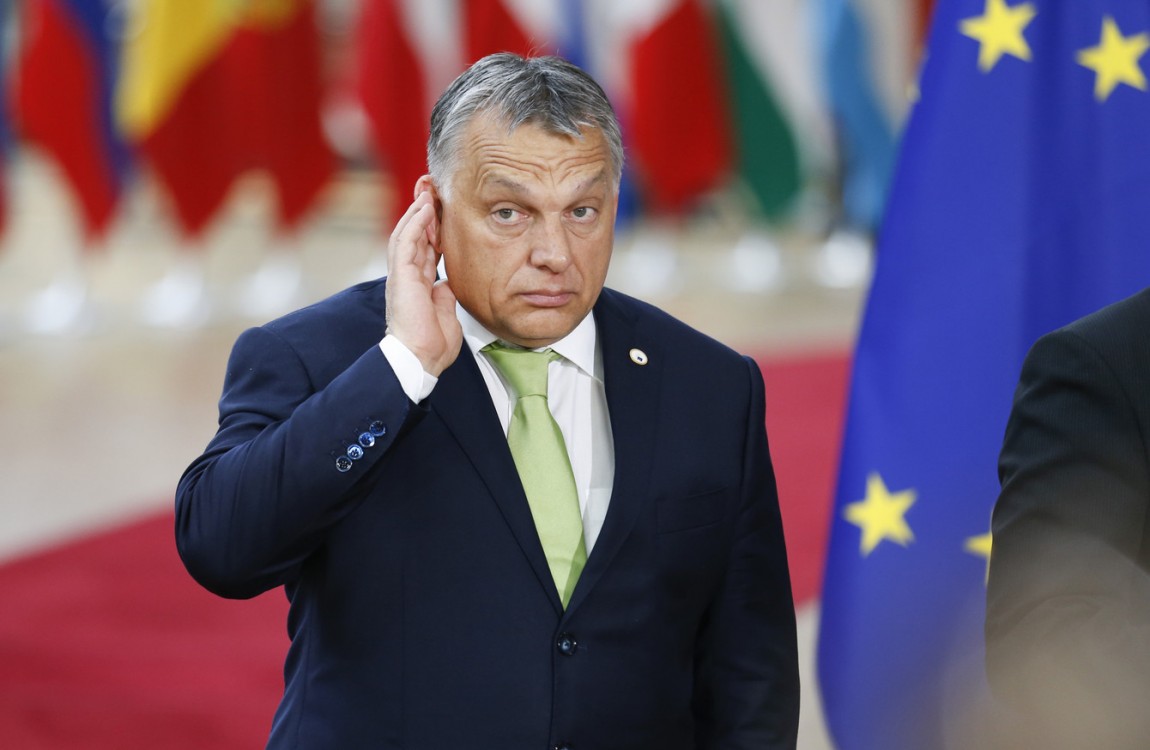
In April, the Fidesz party once more assumed leadership in Hungary, bringing with it a brand of European rightwing populism that no longer bothers to hide its true intentions.
Victor Orban, the prime minister, proudly called his administration an "illiberal democracy" following the victory. The term has been used by journalist Fareed Zakaria to denote "democratically elected regimes that are routinely ignoring constitutional limits on their power and depriving their citizens of basic rights and freedoms.”
While using such a term might have cost other political candidates their election, Orban has instead chosen to fly the "illiberalism" banner since taking the reins of power in 2010. At that time, he cruised to victory on the post-2008 financial crisis ticket claiming that “liberal democratic states can’t remain globally competitive.”
Following his party's shocking landslide victory nearly a decade ago, Orban went on to pass a number of authoritarian laws: regulating content and access of media outlets, preventing people accused of a crime from being able to obtain legal representation, and stripping away the country's National Fiscal Council's ability to investigate or veto his budgetary drafts.
In the years that followed, Fidesz openly turned to cronyism with Orban unabashedly appointing Tunde Hando, one of his oldest friends, to a position of higher authority over the judiciary – including the ability to veto judges' applications to senior positions.
In the process, Orban also proceeded to redraw Hungary's electoral map thereby ensuring future victories as well, even in the event of his party losing the popular vote. The moves have been seen as part of a larger attack against the Hungarian Constitution and voters' civil rights.
These examples, among others, were condemned by Amnesty International as “a threat to the right to freedom of expression” but went largely ignored at home, given Fidesz's overwhelming victory in the latest elections.
A Decade in the Making
Over the past eight years, Fidesz has been able to continually push the envelope, offering ever grander statements and sweeping policies, based on Hungarian voters' misconception of their diminished status as second class citizens in the European Union. Orban, like populist rightwing leaders who came after him, succeeded by feeding off a manufactured fear of the loss of national identity.
Popular support for Fidesz's policies appears to remain strong, even in light of the party's alarming rightward lean. Since 2013, Fidesz has protested against the World Jewish Congress in Budapest, claiming it to be "a Jewish attempt to buy up Hungary," part of the party's generally anti-Semetic stance.
In a 2015 address, Gergely Gulyas, Fidesz's parliamentary group leader, claimed the philanthropist George Soros had been the mastermind behind the EU's "full frontal attack" attempting to force Hungary to capitulate financially to Brussels. Gulyas described Hungary as the last defender of "Christian Europe".
At that time, Hungary had recently built a fence to stop refugees from crossing into the country. According to witness testimonies, officials had driven crowds of Syrians toward Serbia, unleashing attack dogs on defenseless people. This was purportedly carried out in response to the terror attacks that had just taken place in Paris.
In response to the allegations of abuse of refugees, Orban said during a state television address: “We should not look at economic immigration as if it had any use, because it only brings trouble and threats to European people. Therefore, immigration must be stopped. That’s the Hungarian stance.”
In 2016, the Fidesz administration also blocked an EU-wide agreement to prevent discrimination against LGBT people, and instead passed a series of anti-LGBT laws within the country. When questioned about about the discriminatory measures, Orban issued a statementdefining a family unit as "based on the marriage of a man and a woman, or a linear blood relationship, or guardianship."
While Fidesz's policies may seem from the outside like dangerous overreach, it helps to remember that Orban has always cultivated the image of a proactive political leader – ever since he entered the spotlight in 1989, when he demanded that Soviet troops leave Hungary during the reburial of former Prime Minister Imre Nagy, who was himself a staunch anti-Soviet activist. Orban's strongman image has meshed well with Hungary's new pro-Russian stance, which is gradually becoming more attractive to its central European neighbors. Like Hungary, Poland has been feeling misled and ignored by Brussels and is looking to make its own mark on the Union.
No Reprimand in Sight
At present, the only possible opposition to Fidesz is Jobbik, a former neo-Nazi party that had desperately tried, and failed, to paint itself as a legitimate conservative force in the latest elections. On the other end of the spectrum, the Hungarian left has largely remained fractured, with the leading Socialist Party the only one willing to compromise in the interest of creating an force to oppose Fidesz.
While the European Commission is fully within its authority to impose harsher sanctions on Hungary by invoking Article 7, thereby cutting off the country's European voting right as well as further financial support, the body appears unwilling to do so, or to even issue a warning against the country.
With Hungary turning backward to its own dark past, and with other EU member-states following suit, Europe is now confronted with a choice: look to its future and decide how to oppose the rise of the far right, or replay, in new uniforms and under new circumstances, a story that is still fresh from the century we have just left behind.


















